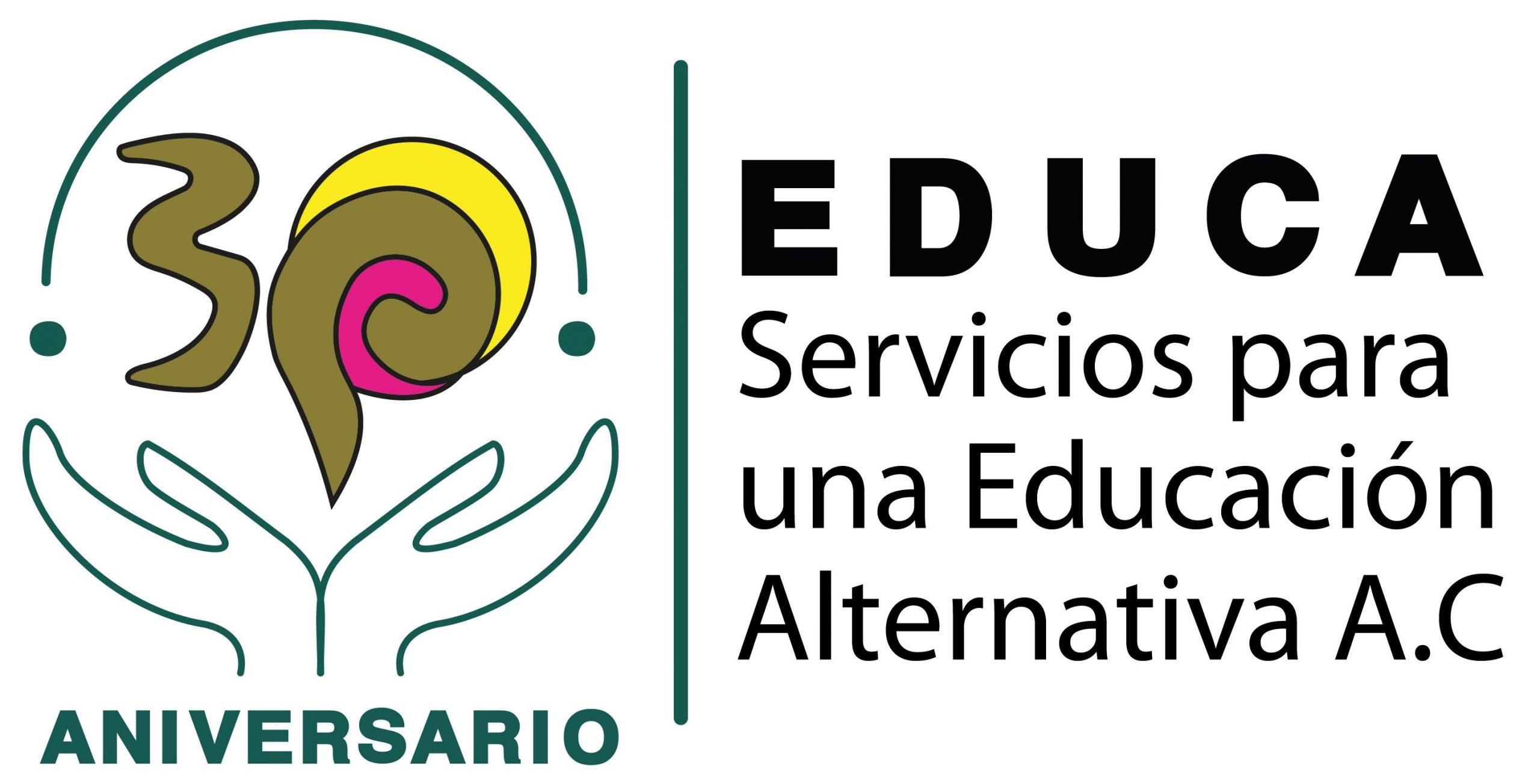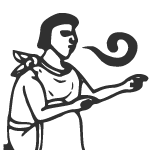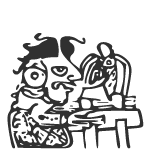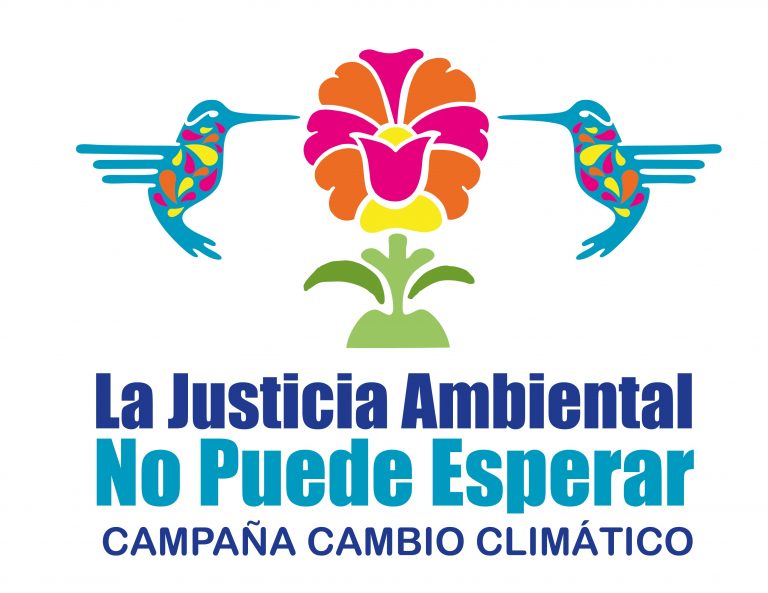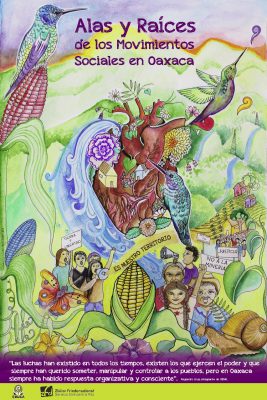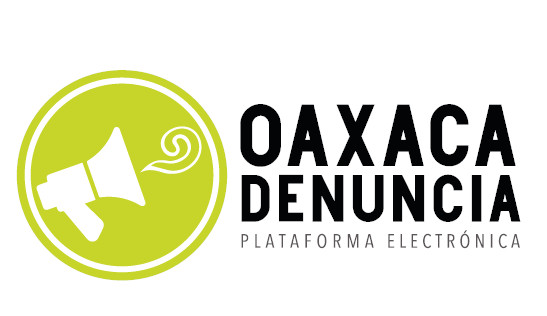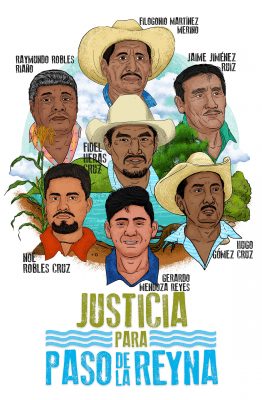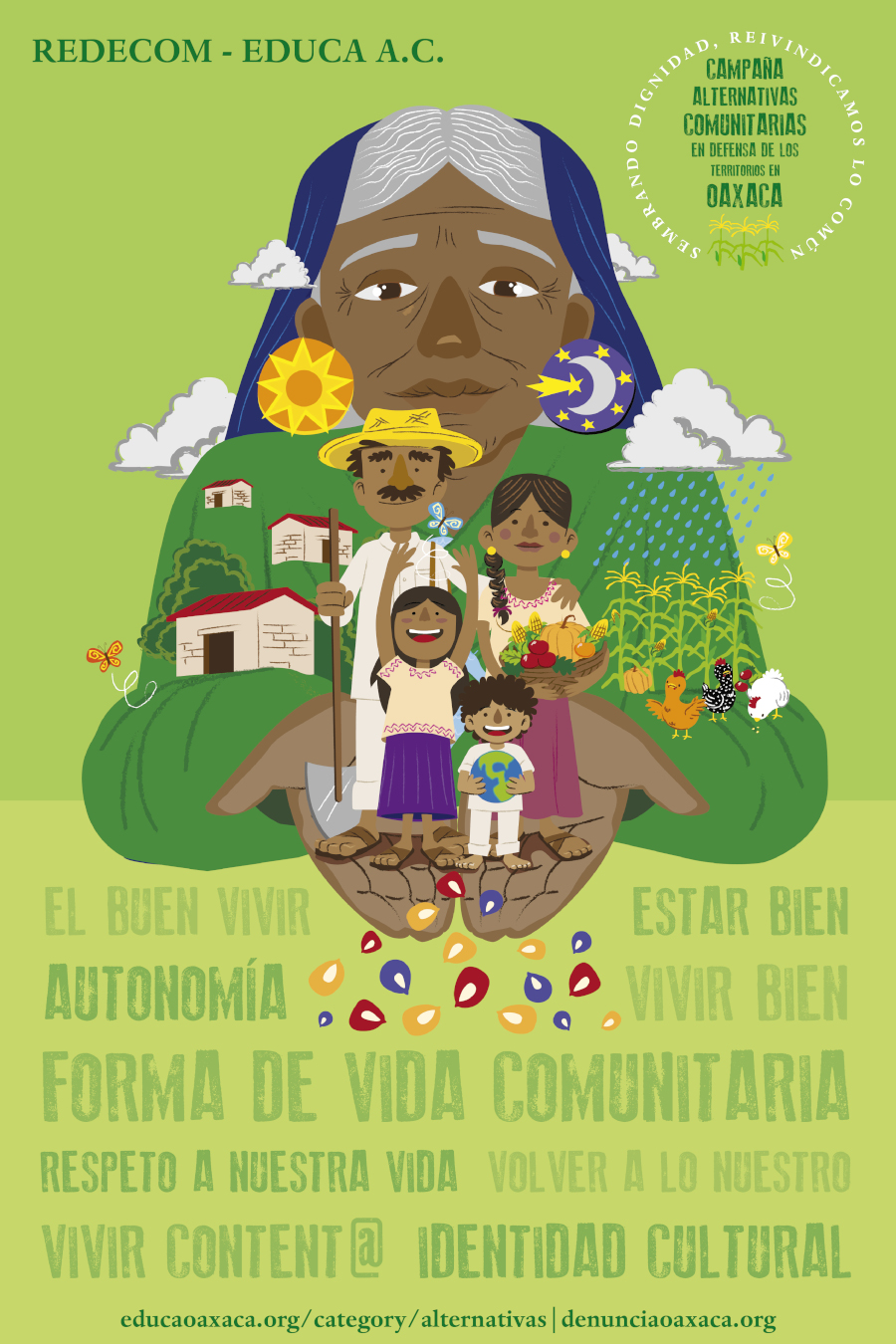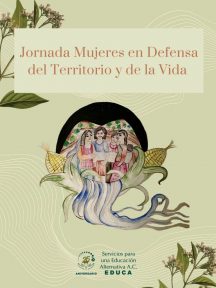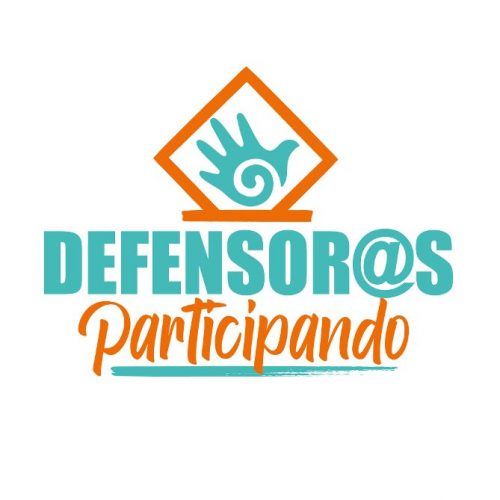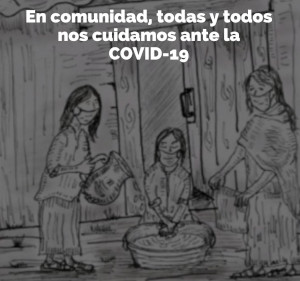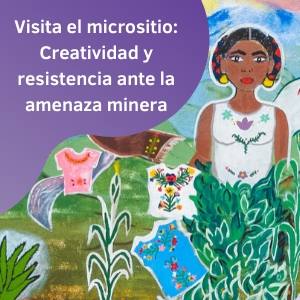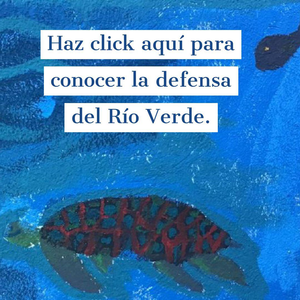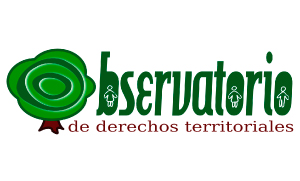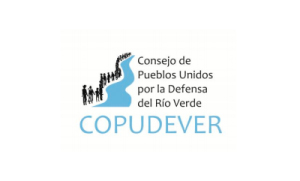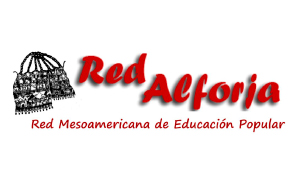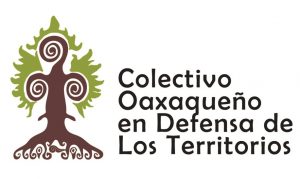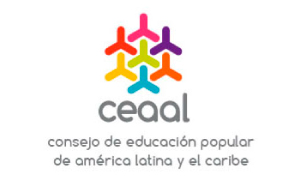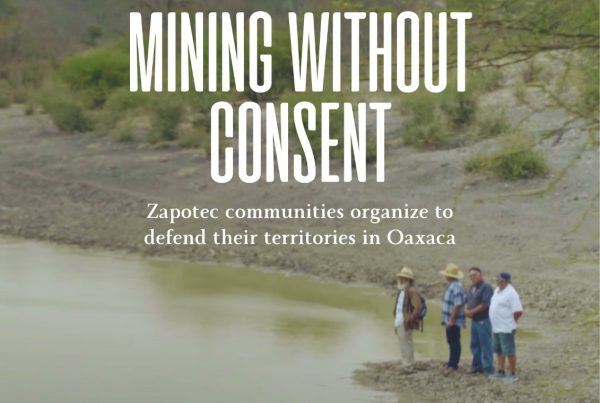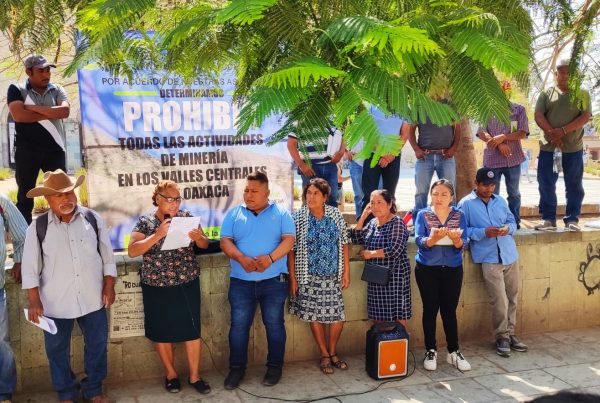1994 was the year of the uprising. That year, we rose up. It was not only the awakening of consciences of millions of people that we saw in the surging of the Zapatista rebellion, a hope for change in the country. This uprising also meant – for a group of young people that had a background in social work in ecclesial fields – to organize themselves, project and be alternative. The political effervescence, combined with citizen participation and the will of many of us to shake off decades of PRI authoritarianism, infected the virus of organization and resistance in innumerable spheres and groups of citizens, among them EDUCA.
The exact register of EDUCA´s date of birth is unknown, but if one had to determine a date on a calendar it would be the 21st of August, 1994. To be precise; the long night in which we the overwhelming electoral results of the presidential elections of that year were announced. While we carried out tasks of electoral observation, with the Alianza Civica (Civic Alliance), our enthusiasm couldn’t help but wane when witnessing a repetition of events: the buying of consciences, frightened citizens giving their votes to the State party and a “revolutionary institutional” steamroller violating any intent of autonomous organization of society. Ernesto Zedillo, PRI candidate, had asserted himself as leader of the left, Cuauhtémoc Cárdenas, candidate of the National Democrratic Front. “Ernesto Zedillo Ponce de León, welcome to the nightmare”, the EZLN spokesperson would say shortly afterwards.
That is how EDUCA emerged, in the middle of the electoral disillusionment and the yearning for “bottom up” democratic change. Those first years were complicated times. The country found itself submerged in a severe economic crisis. In the south of the republic the Zapatista Army converted itself into a powerful force, more political than military, demanding the federal government to respect indigenous rights. In Oaxaca the organization of the villages took another turn, with the rise of the Forums of Indigenous, Peasant and Black Reality, and the debate on community autonomy. Said upswing made possible that in 1995 the constitutional naming of indigenous authorities in Oaxacan municipalities came to be recognized.
It is the end of 20th century; the last years of a century pockmarked by social struggles and indigenous mobilizations in Latin America. EDUCA is part of different spheres of analysis and constructions of agenda: the Forum of Civil Organisms in Oaxaca (FOCO) that confronts attacks of a fiscal law of the work propelled by the NGO´s; the Convergence of Civil Organisms for Democracy, Initiative of National Articulation that fights for a legal framework to promote the work of the civil sector. In the local media EDUCA makes alliances with different organizations for the promotion of training projects directed at villages and communities. The government promotes the opening of private investment on a grand scale, an initiative that as a result would affect the territories in indigenous regions. In the social and political terrain the Army of Popular Revolution (EPR) surges. In the middle of this tumultuous scenario, repression and military persecution against indigenous people of the micro-region of Loxicha is unleashed.
The sierra sur (southern mountain range of Oaxaca) and its wild geography, produces a variety of social and political processes. One of the regions with a strong presence of the progressive church, that promotes education of pastoral agents and social leaders, is an important anchorage in consideration of the work of our organization. For five years we worked in the fields of accompaniment and training of ecclesial grassroots communities, economic and social projects and the accessory of leaders that, in turn, struggled to support local power of the caciques. The sierra sur, one of the poorest regions of Oaxaca, impaired also by natural disasters, was an important birthplace in the process of EDUCA’s maturing. If could rewind time we would say: “All paths lead south”.
An array of themes make up the multicoloured tapestry that makes up EDUCA’s work: solidarity economy, responsible consumption, public savings, themes related to alternative economies in society. In 2001 EDUCA launched the Network of Community Economies “Guesa”, small economic projects to supported by credits, training and exchange of their own products. The mystery of the network is based on the idea that rather than giving people a fish, show them how to fish.
At par with political alternation in Mexico, the end of the PRI regime, and the efforts to create a new federalism, EDUCA dedicates itself to systematic training of municipal authorities. ‘The Municipal School of Oaxaca’ will have been without doubt, the most important and innovative training project of indigenous authorities, which has been carried out in the state. EDUCA worked in collaboration with the organizations: CAMPO, UCIZONI, CESEM, Ñu’u Jii Kandii and Tequio Jurídico. The school’s purpose was to strengthen indigenous institutions and, in an indirect way, combat the local cacicazgos (authorities or leaders of indigenous tribes). It is for that reason also, that in that particular period, EDUCA carried out observations in the municipal ‘Uses and Customs’ elections, with the aim of dissuading conflicts and evading caciquile impositions. An example of the municipal struggle for the recuperation of spaces of power was Santiago Ixtayutla, a municipality of profound inequalities, but simultaneously one of great political transformations.
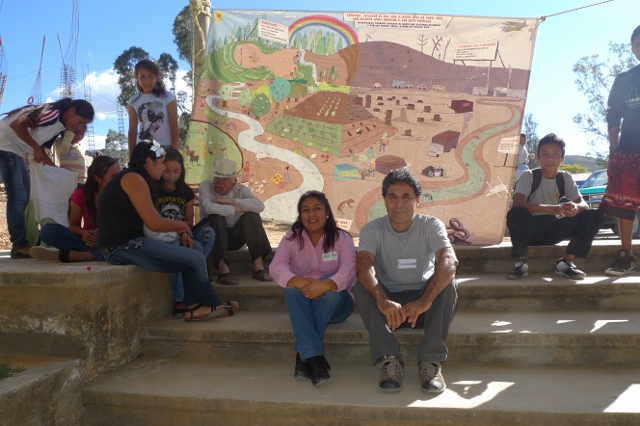 The first social uprising of the 21st century took us by surprise. The year of 2006 was the synthesis of the participation of social movements and the intentions of social change that were practiced, with great enthusiasm but without too much forcefulness, in earlier years. The integration of the Popular Assembly of Oaxaca and the active participation of Oaxaca’s civil society, permitted a display of intentions of nonviolent revolution and boosted the transformations that had been sought for years. The Epacio Civil de Oaxaca (Civil Space Oaxaca) elaborated its citizen agenda and reevaluated its public positioning. For civil organizations the fundamental demands transcended the “fall of the tyrant”; they were more interested in profoundly modifying the authoritarian and corrupt regime. The residue of 2006, and the aftermath of the brutal repression of the manifestations and social protest also indicated the strengthening of social processes. It was the catastrophe of the PRI regime that severely damaged Oaxaca. Without a doubt, the regime had cracked.
The first social uprising of the 21st century took us by surprise. The year of 2006 was the synthesis of the participation of social movements and the intentions of social change that were practiced, with great enthusiasm but without too much forcefulness, in earlier years. The integration of the Popular Assembly of Oaxaca and the active participation of Oaxaca’s civil society, permitted a display of intentions of nonviolent revolution and boosted the transformations that had been sought for years. The Epacio Civil de Oaxaca (Civil Space Oaxaca) elaborated its citizen agenda and reevaluated its public positioning. For civil organizations the fundamental demands transcended the “fall of the tyrant”; they were more interested in profoundly modifying the authoritarian and corrupt regime. The residue of 2006, and the aftermath of the brutal repression of the manifestations and social protest also indicated the strengthening of social processes. It was the catastrophe of the PRI regime that severely damaged Oaxaca. Without a doubt, the regime had cracked.
“The moment of the delivery of the merchandise arrived; a third of the national territory is currently concessioned to private companies”. These were the words Gustavo Esteva used to summarize the moment and national dynamic. The “accumulation of dispossession” had reached its peak; territories consessioned to mining companies, wind farm companies, real estate or goods for the development of hydraulic projects, or for the construction of highways, included the seed of genetically modified corn; all of that shook and elevated entire communities, mainly indigenous ones. For EDUCA, a moment for the defense of territory and of their own nahuales and caretakers had arrived.
The consultation and accompaniment of movements in defense of territory has turned into a priority for our organization, as well as the allegations on the veracity of the transnational investment companies and the weakness of the state. The defense of the Rio Verde (Green River) on the coast of Oaxaca, as well as the struggle for the protection of territory in Oaxaca’s central Valley, which is threatened by mining companies, has lead EDUCA to take a stance and support movements in defense of land and territory. A crucial experience of training communities is the current struggle of the Counsel of Unites Villages in the Defense of the Green River (COPUDEVER), which resists the construction of a hydraulic project imposed by the Federal Electricity Commission (CFE).
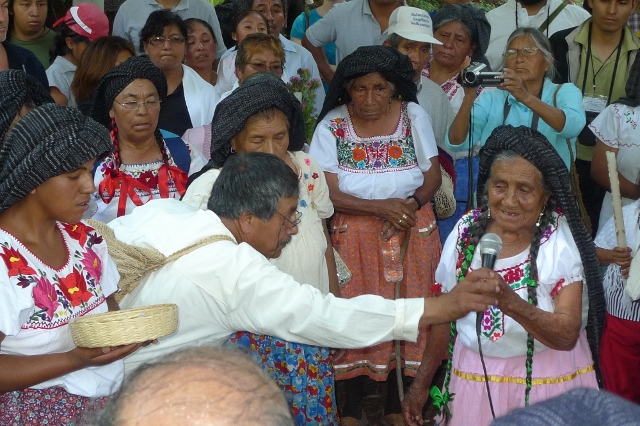 State of democracy in Oaxaca: in drips and drabs. The political alternation raised a “whirlwind of hope” for the state. However the new government did not manage to fulfill these expectations of change. The constitutional reform and the changes in the legislation did not mark a categorical difference with earlier governments. Age old problems persist and they combine with new challenges. For EDUCA, the construction of a critical and assertive civil pillar has been very important. To influence the difficult path of fluctuation and political transition has also been a venture for our organization.
State of democracy in Oaxaca: in drips and drabs. The political alternation raised a “whirlwind of hope” for the state. However the new government did not manage to fulfill these expectations of change. The constitutional reform and the changes in the legislation did not mark a categorical difference with earlier governments. Age old problems persist and they combine with new challenges. For EDUCA, the construction of a critical and assertive civil pillar has been very important. To influence the difficult path of fluctuation and political transition has also been a venture for our organization.
EDUCA´s track record is associated with networks and collective spaces of which it has become a part. Initially, with the rise of popular education, it established a relationship with the CELAAL. The Municipal Citizen Network was fundamental in the effort towards the strengthening of indigenous municipalities. On the level of the Latin American agenda of civil society we connected with the ALOP. In the struggle for democracy we emphasized the experience of Civil Power. More recently in the work for the defense of territory we managed to unite efforts on a national level with MAPDER and REMA, and on a state level through the Oaxacan Collective in Defense of Territory. Through this the collaboration with the academic and university sector has been drawn attention to.
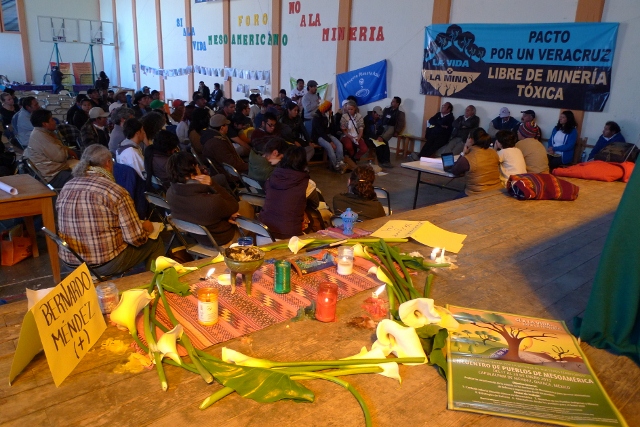 This is a brief account of the story of EDUCA. A photograph of this plot on which we continue to sow social processes. It is hard to summarize so much wealth with which the communities, organizations and people that have crossed our path have nourished us in only a few words. The formation of EDUCA has been a collective process, and within it many companions have played important roles through their support and testimony. As well as this it is important to recognize that that work would not have been possible without the solidarity and support of donors, foundations and people that have confided and believed in our project. To all, we thank you for your feedback, collaboration and solidarity.
This is a brief account of the story of EDUCA. A photograph of this plot on which we continue to sow social processes. It is hard to summarize so much wealth with which the communities, organizations and people that have crossed our path have nourished us in only a few words. The formation of EDUCA has been a collective process, and within it many companions have played important roles through their support and testimony. As well as this it is important to recognize that that work would not have been possible without the solidarity and support of donors, foundations and people that have confided and believed in our project. To all, we thank you for your feedback, collaboration and solidarity.
20 years ago we rose up to answer for our hope. Today we continue with this firm conviction. It is true that 20 years isn´t anything, it is barely an intake of breath, but at the same time it can be a lifetime of plentiful and valuable resistance. Thank you!
EDUCA: 20 YEARS OF “SOWING SOCIAL PROCESSES”
Services for an Alternative Education A.C. EDUCA
![]()
